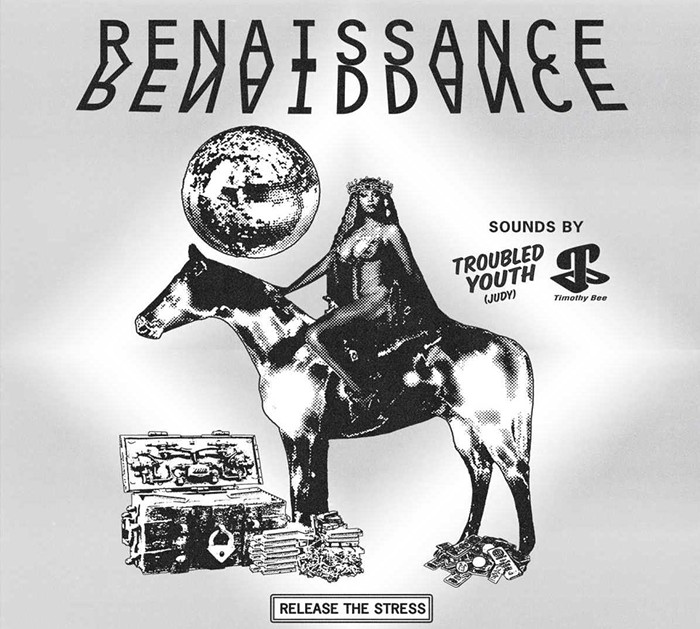IN THE LATE '70s, the musician known as Laraaji was a busker in Manhattan's Washington Square Park. This was well after his career as a stand-up comic and actor had ended (you can catch him in Robert Downey Sr.'s 1969 subversive cult classic Putney Swope). And it was around the time he decided to drop his birth name of Edward Larry Gordon.
Spurred by his interest in meditation and the spiritual power of sound, Laraaji spent his time in a section of the park, closing his eyes and performing hypnotic, improvised compositions using an amplified autoharp. Understandably, the reaction to his music was mixed.
"One night after a successful performance, this European gentleman in the area came over to me," the 72-year-old Laraaji remembers, "and he said, 'I listen to your music for a long time, and all I hear is plinky plinky plinky. I don't hear any melody.' Other people will tell me they heard this sound wafting down the street and it drew them out of the rush. They enjoyed that lift out of the urban intensity."
One person who was drawn in was Brian Eno, who dropped a note in Laraaji's zither case, inviting the musician to record an album with him. It's the kind of fortuitous moment that every artist dreams of, but Laraaji saw it as the universe simply nudging him forward.
The LP that came out of their collaboration, Ambient 3: Day of Radiance, is the best primer for Laraaji's music. The first half features quick pulses of notes that seem like they should fill your nerves with sparks of nervous energy. Instead, they hypnotize and soothe, moving you gently into the slowly strummed chords and lingering melodies that close out the recording.
The effect of this album, and most everything Laraaji has recorded since, is demonstrated by the state he enters when he performs the pieces: eyes closed, beatific smile, completely lost in the sound. "I access my inner score, my inner lead sheet," Laraaji says. "I like to temporarily forget that I'm playing for separate beings and am interacting with a unified energy field. I can access my imagination, too. I imagine angelic dancers or oceans or the blood flowing through people's veins."
In surveying his career, there's never a sense of career goals being met or any kind of strain being put into his work. Like that fortuitous moment with Eno in the park, Laraaji seems to be happily swept along by a current that's out of his control. The threads—like his work with Brian's brother Roger in the group Channel Light Vessel, or his association with All Saints Records, the Eno-adjacent label that has released several of his albums, including the recent two-CD set Celestial Music 1978-2011—are easy for outsiders to connect. For Laraaji, though, it feels like the universe simply puts him where it decides he should be.
When I suggest this during our conversation, he agrees but also gently dismisses the idea that there are no objectives behind his work. "My intention is to support people's imaginations and emotional states," he says. "It's about relieving anxieties and dissolving internal stress patterns and opening people to the idea that they can sink deeper into the present moment without it being a boring, forced experience."



















